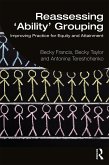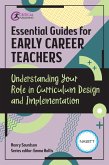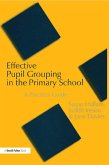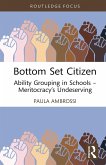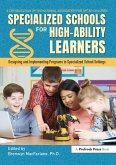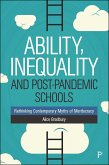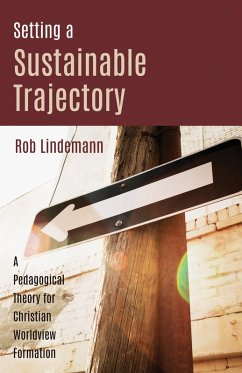The use of ability-grouping is currently increasing in primary schools. Teachers and teacher educators are placed in the unenviable position of having to marry research evidence suggesting that ability-grouping is ineffectual with current policy advocating this approach.
This book links theory, policy and practice in a critical examination of ability-grouping practices and their implications in primary schools, with particular reference to primary mathematics. It provides an accessible text for teacher educators to support their students in engaging with the key debates and reflecting upon their practice. Key changes in structural approaches, such as the movement between streaming, setting or mixed-ability teaching arrangements, are explored in the light of political trends, bringing this up to date with a discussion of current policy and practice.
Using a case-study approach drawing on the author's doctoral research across three primary schools in tandem with wider literature, the book explores how children perceive themselves in relation to ability-language and practices and the implications of this for their engagement with the primary mathematics classroom. It examines what ability-grouping actually looks like in these primary schools, the pedagogic challenges and choices teachers face, and the implications of these decisions for pupils' learning and well-being. The book concludes with a discussion of the potential for change in current practice.
This book links theory, policy and practice in a critical examination of ability-grouping practices and their implications in primary schools, with particular reference to primary mathematics. It provides an accessible text for teacher educators to support their students in engaging with the key debates and reflecting upon their practice. Key changes in structural approaches, such as the movement between streaming, setting or mixed-ability teaching arrangements, are explored in the light of political trends, bringing this up to date with a discussion of current policy and practice.
Using a case-study approach drawing on the author's doctoral research across three primary schools in tandem with wider literature, the book explores how children perceive themselves in relation to ability-language and practices and the implications of this for their engagement with the primary mathematics classroom. It examines what ability-grouping actually looks like in these primary schools, the pedagogic challenges and choices teachers face, and the implications of these decisions for pupils' learning and well-being. The book concludes with a discussion of the potential for change in current practice.
Dieser Download kann aus rechtlichen Gründen nur mit Rechnungsadresse in A, D ausgeliefert werden.



